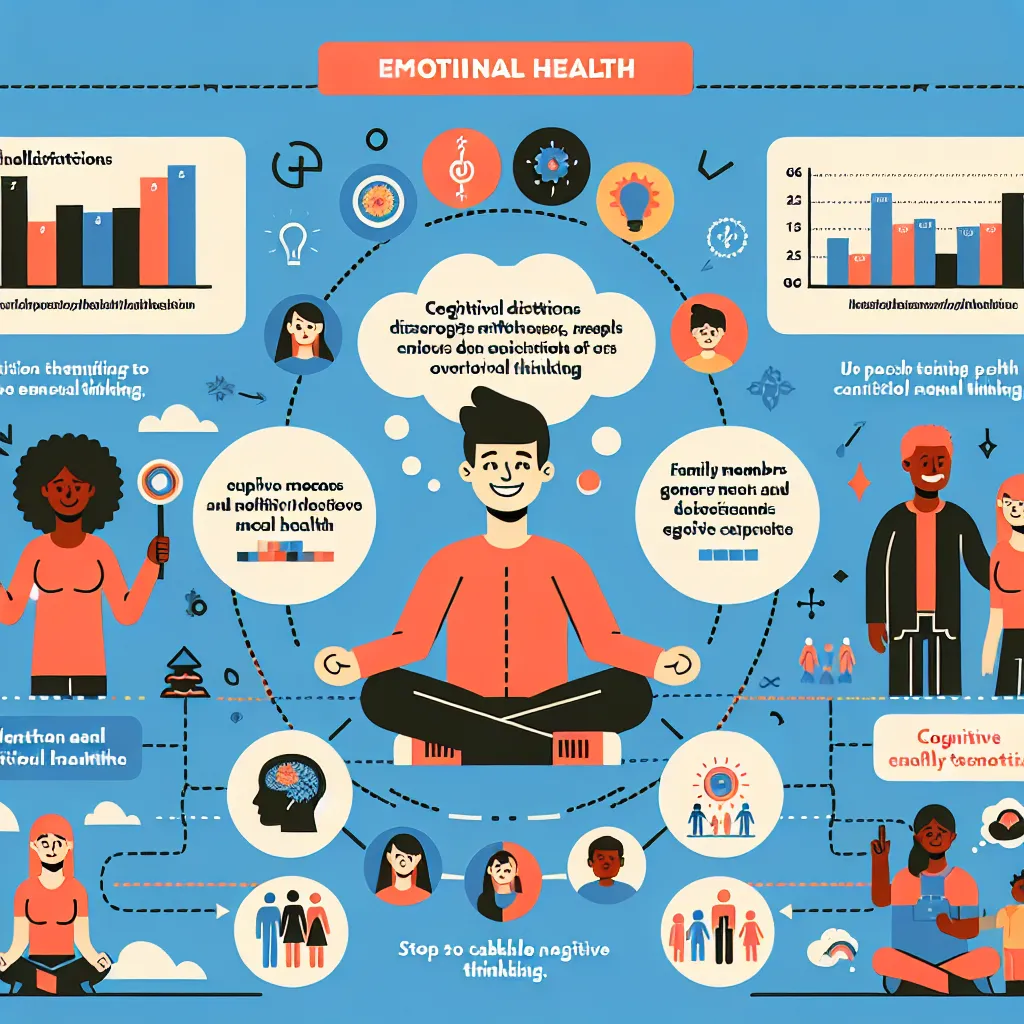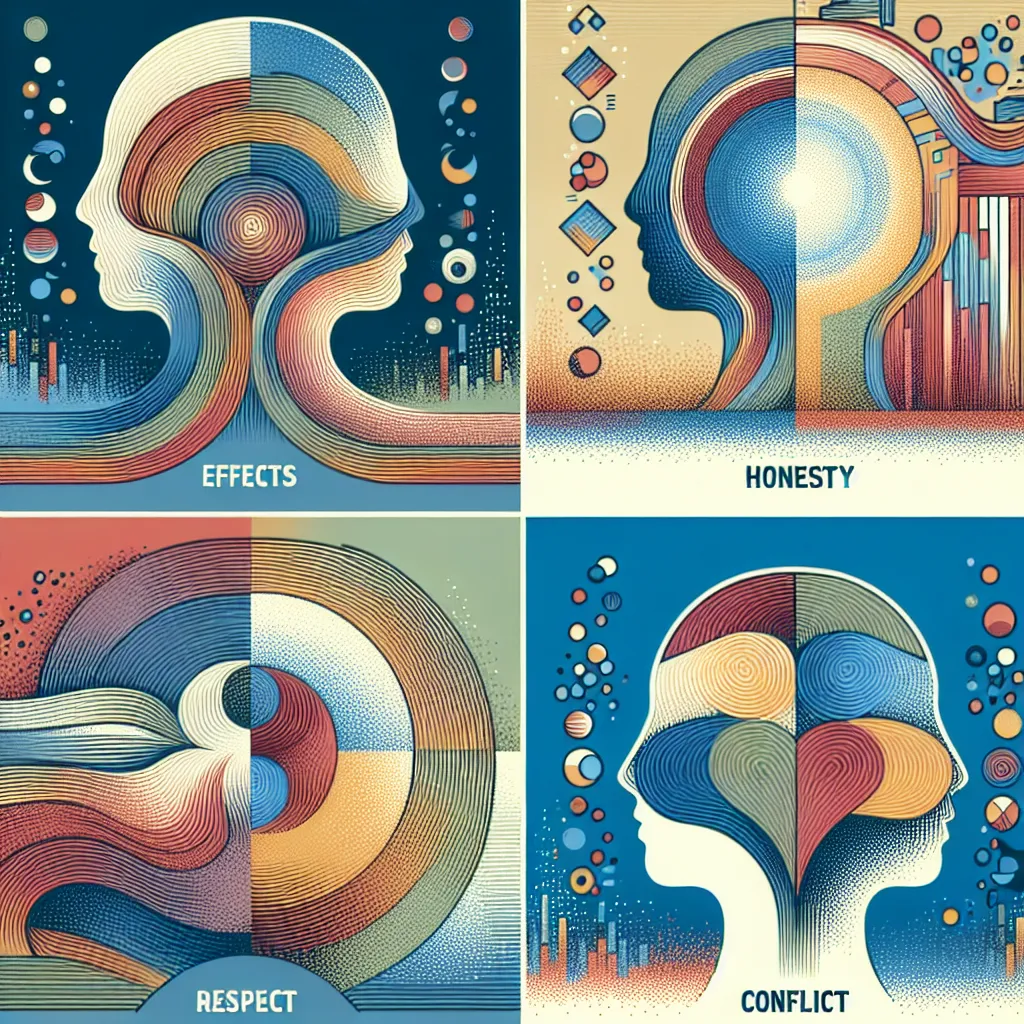Ask AI on The Internet
Question: Describe the difference between mental and emotional health. Choose one characteristic of people with positive mental and emotional health and explain how it reflects that someone is mentally and emotionally healthy. What is the benefit of positive mental and emotional health in your life? With a partner, discuss the difference between mental distress, a mental health condition, and a mental illness. How does family influence mental and emotional health? Consider the influence of family genetically and socially. Choose one cognitive distortion and give an example of how it has affected you. What steps can you take to challenge this pattern of thinking?
### Difference Between Mental and Emotional Health **Mental Health** refers to the state of our cognitive processes. It involves our ability to think clearly, make decisions, solve problems, and maintain attention. Good mental health enables individuals to handle stress well, relate to others, and make judgments. **Emotional Health** pertains to our ability to manage and express the emotions that we experience. This involves how we cope with both positive and negative emotions and how we remain resilient in the face of adversity. ### Characteristic of People with Positive Mental and Emotional Health **Resilience** is one key characteristic of people with positive mental and emotional health. A resilient person can bounce back from setbacks, adapt well to change, and keep going even under difficult circumstances. This reflects mental and emotional health because resilience requires both cognitive strategies to overcome challenges (mental health) and the ability to manage and recover from emotions (emotional health). ### Benefit of Positive Mental and Emotional Health Positive mental and emotional health leads to improved quality of life. When we are mentally and emotionally healthy, we can work productively, enjoy our relationships, and cope with stress in a healthy way. This overall well-being fosters a sense of peace, purpose, and fulfillment, which can enhance our physical health and longevity. ### Mental Distress, Mental Health Condition, and Mental Illness - **Mental Distress**: This is a temporary state of emotional discomfort or anxiety usually caused by some external stressor. It does not last long and typically resolves on its own or with some short-term strategies such as talking to a friend or taking a break. - **Mental Health Condition**: This can be described as any condition that affects a person's thinking, feeling, behavior, or mood. Conditions might include mild anxiety or depression and can range in severity. They usually don’t have a specific timeline for recovery and may require professional intervention. - **Mental Illness**: This refers to clinically diagnosable mental health disorders that significantly disrupt a person’s thinking, feeling, mood, ability to relate to others, and daily functioning. Examples include Bipolar Disorder, Schizophrenia, and Major Depressive Disorder. These often require long-term treatment and management. ### Influence of Family on Mental and Emotional Health **Genetically**: Family genetics can predispose individuals to certain mental health conditions. For example, a family history of depression may increase the risk for other family members to experience similar issues. **Socially**: Families shape our emotional frameworks and coping mechanisms. Supportive, loving, and communicative family environments foster positive emotional development. On the other hand, families that are abusive or neglectful can contribute to mental and emotional health problems. ### Cognitive Distortion - Example and Steps to Challenge **Cognitive Distortion**: **Overgeneralization** **Example**: If I fail a test, I might think, "I’m terrible at everything" instead of seeing the failure as an isolated event. **Steps to Challenge**: 1. **Recognize the Distortion**: Identify and acknowledge when you are overgeneralizing. 2. **Examine the Evidence**: Look at both sides of the evidence, for and against the thought. Ask yourself, "Is this always the case? Are there times when I've succeeded?" 3. **Challenge the Thought**: Replace the distorted thought with a more balanced one. For example, instead of thinking "I’m terrible at everything," tell yourself, "I didn’t do well on this test, but I have done well in other subjects and I can improve with more preparation." 4. **Practice Mindfulness and Positive Affirmation**: Focus on the present moment without judgment and affirm your worth and abilities regularly. 5. **Seek Support**: Sometimes discussing these thoughts with a friend, family member, or therapist can provide an external perspective and help reinforce healthier thinking patterns. Taking these steps consistently can help in weakening the power of cognitive distortions and improving overall mental and emotional health.
Think your answer is better than the AI's? Post it below.
Other Most Relevant Posts:
 1. Self-image vs. self-esteem distinction
2. Embracing challenges and learning from disappointments
3. Positive environment boosts self-worth and resilience
4. Social media: curated lives,
1. Self-image vs. self-esteem distinction
2. Embracing challenges and learning from disappointments
3. Positive environment boosts self-worth and resilience
4. Social media: curated lives,
Question Tags
If you want your question answered by an AI, click here.






Post your own comment: